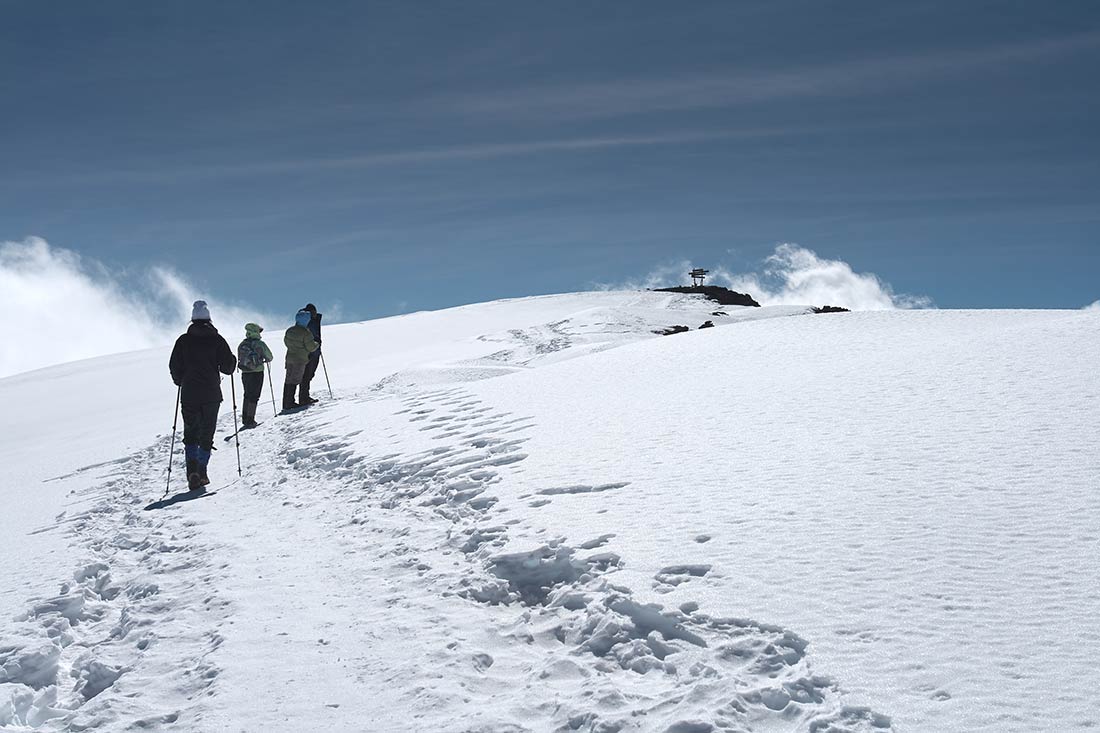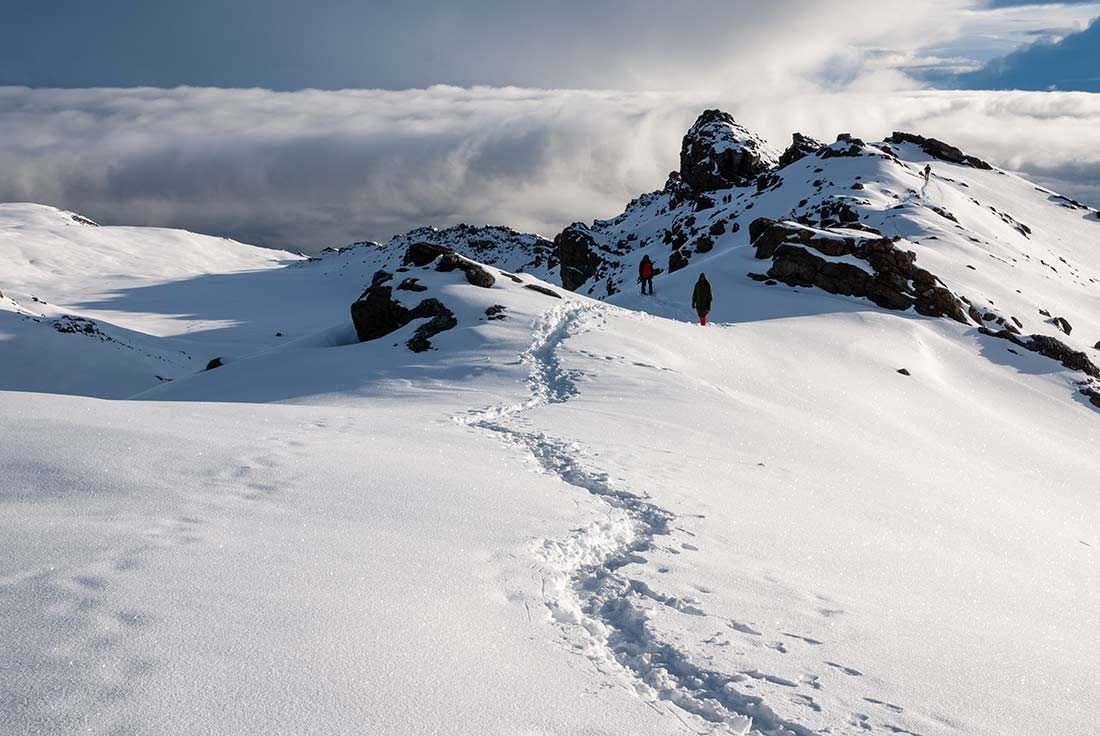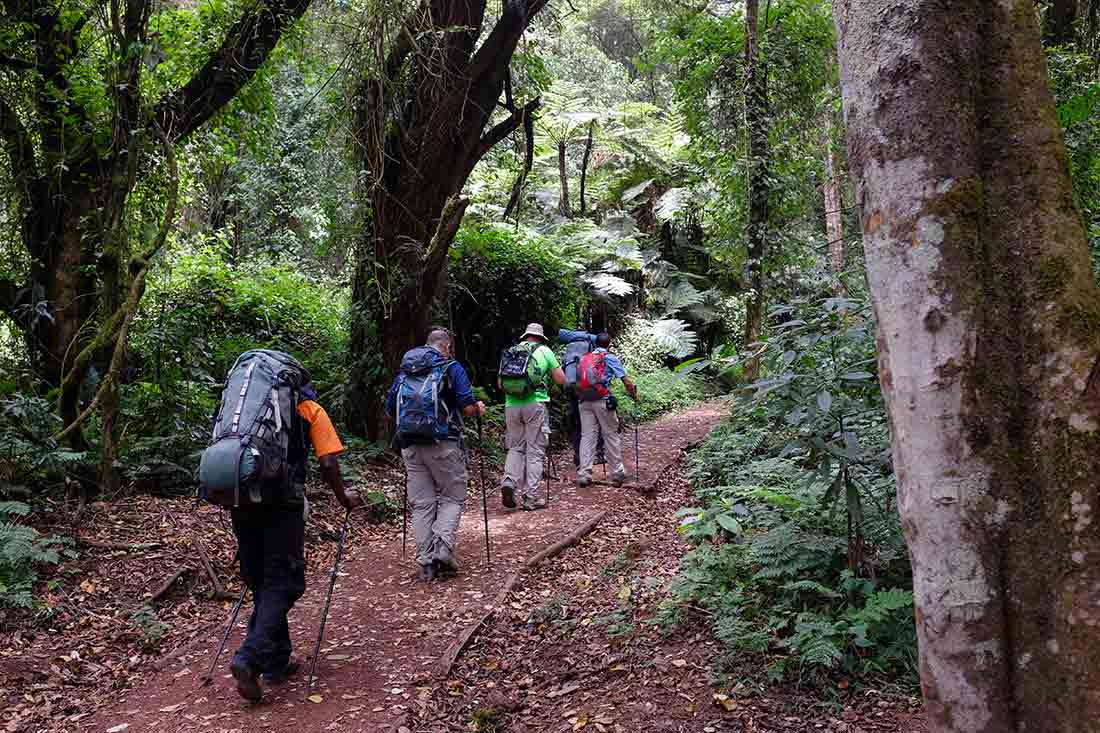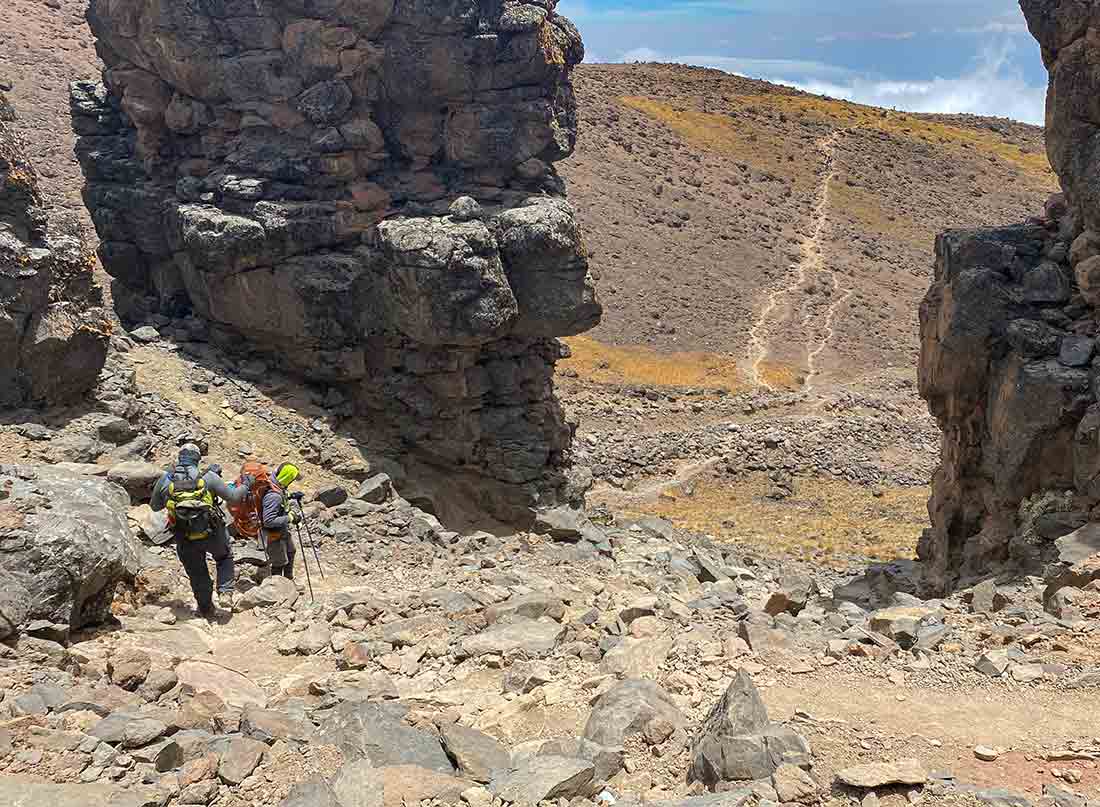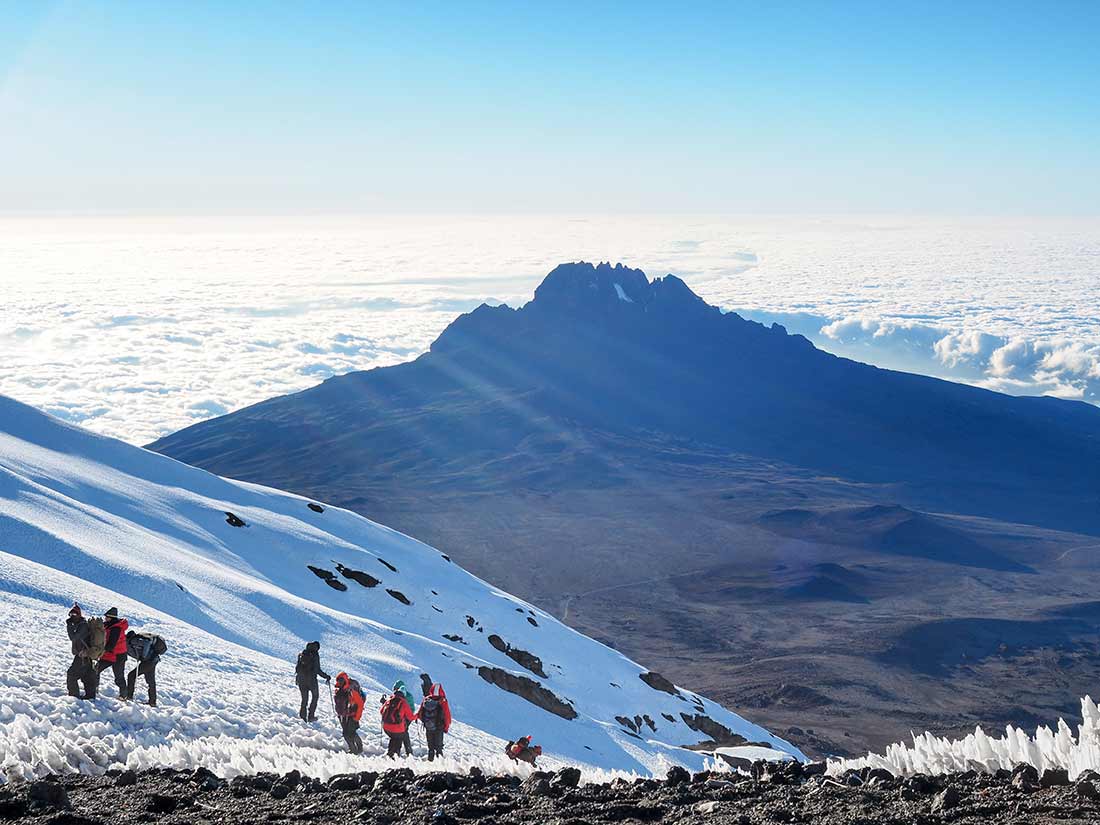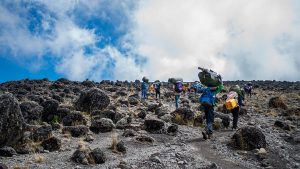Mount Kilimanjaro is a formidable natural wonder that has beckoned adventurers, trekkers, and nature enthusiasts worldwide. This majestic stratovolcano in Tanzania beacons us with its stunning landscapes, diverse ecosystems, and challenging climb.
While ascending Kilimanjaro is a remarkable accomplishment, it comes with its own set of physical, mental, and environmental challenges. In this article, we will explore the hardest part of being on Kilimanjaro, shedding light on the difficulties that trekkers face as they strive to reach the summit.
Altitude and Acclimatization
The most daunting challenge of ascending Kilimanjaro is the extreme altitude. Rising to a staggering 19,341 feet (5,895 meters) above sea level, Kilimanjaro’s towering summit, Uhuru Peak, tests the limits of human endurance.
The decrease in oxygen levels at higher altitudes can lead to altitude sickness. Symptoms range from headaches and nausea to severe cases that can be life-threatening.
Trekkers must acclimatize to these harsh conditions as they ascend. You’ll spend several days hiking through the different climate zones. These zones range from lush rainforests to alpine deserts. The body needs time to adjust to the lower oxygen levels. It’s essential to choose a trekking route that allows for gradual acclimatization. Eight or more days are ideal. Climbers should also stay hydrated. They should listen to the guides and maintain a steady pace. They should also listen to their bodies to minimize the risk of altitude-related problems.
Extreme Weather Variations
Kilimanjaro’s diverse climate zones make it susceptible to rapid weather changes. Climbers can encounter rain, snow, sleet, and intense sunlight all in a single day. The constant shifts in weather conditions add an element of unpredictability to the climb. Trekkers need to prepare with appropriate clothing and gear.
While trekking on Kilimanjaro, you’ll need to layer up to stay warm during the cold and be ready to strip down as you hike through the warmer zones. It’s important to bring high-quality waterproof gear. The gear should also be insulated to endure the ever-changing weather. Proper preparation will ensure your safety and comfort.
Physical and Mental Endurance
Ascending Kilimanjaro is a physically demanding endeavor. Trekkers must be in good physical shape and adequately trained to handle the rigors of hiking at high altitudes. The terrain varies from steep rocky trails to paths of scree. The constant uphill climb can be grueling on the legs and lungs.
Mental fortitude is equally crucial. The multi-day trek can be mentally challenging, especially during the final push to the summit. The high altitude, exhaustion, and sub-zero temperatures at the summit can test your determination. It’s essential to stay focused on your goal and maintain a positive mindset throughout the journey. Our guides will keep you motivated by singing and dancing as you make your way to the summit.
Summit Night
The night of the summit push is often regarded as the hardest part of Kilimanjaro. Climbers typically begin their ascent to Uhuru Peak around midnight to reach the crater rim at sunrise. This is a strenuous, cold, and mentally demanding ordeal. The thin air at high altitudes makes each step grueling. The freezing temperatures intensify the challenge.
Moreover, the rocky, uneven terrain and steep slopes require careful footing and the use of headlamps to navigate in the darkness. Climbers must also battle exhaustion and altitude-related symptoms during this critical phase. However, the reward of witnessing the sunrise from the Roof of Africa and the sense of accomplishment make this challenging night unforgettable.
Final Thoughts
Climbing Mount Kilimanjaro is a remarkable adventure that offers a unique blend of physical, mental, and environmental challenges. The hardest part of Kilimanjaro may vary from person to person, but it’s the combination of factors like altitude, extreme weather, physical endurance, and the summit night that collectively tests the mettle of trekkers. Despite the hardships, those who persevere will be rewarded with breathtaking views and an unparalleled sense of achievement. Conquering Kilimanjaro is not just about reaching the summit; it’s about discovering the depths of your strength and determination while experiencing the wonders of Africa’s highest peak.

